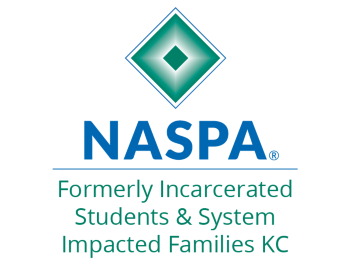
Formerly Incarcerated Students & System Impacted Families Knowledge Community
Formerly Incarcerated Students and System Impacted Families
The NASPA Formerly Incarcerated Students and System Impacted Families Knowledge Community has been created to help fill this gap from national organizations for professionals and students seeking resources and community from conviction-to-education pathway. The NASPA Formerly Incarcerated Students and System Impacted Families Knowledge Community purpose is to focus on (1) in-prison education programs and (2) the formerly incarcerated student population in current 2-year and 4-year educational institutions. The mission of the Formerly Incarcerated Students and System Impacted Families Knowledge Community is to support student affairs educators to learn, share, and collaborate on tactics and strategies to support formerly incarcerated college students and their families in higher education.
The immediate goals for this Knowledge Community (KC) are to advocate for services focused on meeting the needs of this specific student population inside and outside the virtual and physical classroom. The Knowledge Community seeks to suggest an anti-deficit and asset-based mindset through our collective scholarly work. Furthermore, we look to amplify the voices of researchers, staff, and faculty members who have been directly system impacted. The importance of this KC is to highlight and amplify the voices of formerly incarcerated and system impacted students, researchers, and staff who are often consulted on the conception of projects however are frequently left out of final projects and actions. A continuous effort of the KC is to empower this population, refrain from using this population as research subjects but uplift them as researchers and guides. Additionally, we actively seek NASPA memberships that are reflective throughout all regions to join the new KC as we plan to learn, share, and collaborate on projects that ensure the mission of this KC is met for all students with intersectional identities.